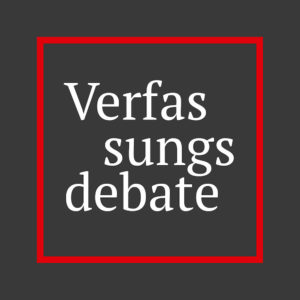What we do
Verfassungsblog is a global forum at the interface of academy and society. We open up debates on recent topics and developments in public law – internationally, interdisciplinary and open access. We are independent and community-led. We offer innovative, academic publication formats for reviewed content. Our goal is to ensure maximum speed in our publication process, meeting public demand for academic expertise at its peak – without compromising quality.
Founded in 2009 as a “blog” by Max Steinbeis, more than 3,500 experts from all over the world have now published on Verfassungsblog. Our authors discuss pertinent questions of constitutional law making their research visible to colleagues and the general public. Each of the 800 articles that Verfassungsblog publishes each year undergoes at least one editorial review by one or more members of our 6-person editorial staff and, if necessary, by one or more members of the Advisory Board who have special expertise in specific areas of public and constitutional law.
Verfassungsblog‘s content is open for all: We publish everything Diamond Open Access, i.e. without fees for readers or authors. We license all our content with a CC BY-SA license (Open Access Statement). Verfassungsblog‘s publications also meet a high technical quality by providing metadata, DOIs and long-term archiving. Verfassungsblog is a non-profit organization and transparent in terms of costs and funding sources. All revenue is directly used to maintain Verfassungsblog’s operations, to ensure our high quality standards, and to develop new content and formats.
Where possible, Verfassungsblog uses open source solutions and focuses on user data minimization. For example, only Matomo is used for data analysis on the website, while the team uses Mattermost for internal communication and Nextcloud for file storage and collaboration.
Verfassungsblog is a space for legal and political controversy and debate. Opinions published on this website are not necessarily shared by the Verfassungsblog editors, publisher and partners.
Our Formats
The blog timeline is the centerpiece of Verfassungsblog. It is where we publish expert analyses and comments on topical events and developments in constitutional law and policy, usually on a daily basis (ISSN: 2366-7044).
Our online symposia (Verfassungsdebate) open up spaces for academic debate on ongoing developments in national, European and international law. In a symposium, multiple blog posts analyse and discuss a topical issue from different perspectives. Many online symposia are subsequently published as Verfassungsbooks.
Every Friday, we send out a commentary on a current constitutional topic, a review of what has happened on the blog, and an editorial cultural recommendation (Editor’s Pick) as an e-mail newsletter – in German and English (subscribe here). Our weekly editorial is also published on the website.
Facts & Figures
About 800 articles are published every year on Verfassungsblog. The articles cover legislative proposals and amendments, court decisions, and debates in public law (especially constitutional law) and related disciplines. We cover German law intensively, but are also covering the emerging common European constitutional space and beyond. Our authors provide detailed analyses of legal debates in different jurisdictions like France, Hungary, India or Kenya.

More than 3,500 authors from all over the world have published on Verfassungsblog. Most of our authors are legal scholars, but we also publish contributions from experts working in legal practice, public administration and politics.
Our professional editing team oversees submissions, reaches out to authors and collaborates intensely with them to make sure that their texts reach their full potential. Our editors are well-connected legal scholars. They work on permanent contracts and are paid according to the German public service CBA (TV L-13). The editorial work includes (i) the acquisition of contributions, (ii) the review of and response to solicited and unsolicited submissions, and (iii) the substantive and formal editing of contributions in one to three loops with the author. The editorial team is supported by 26 associate editors who have special expertise in individual areas of public and constitutional law and help ensure the academic quality of the publications.







